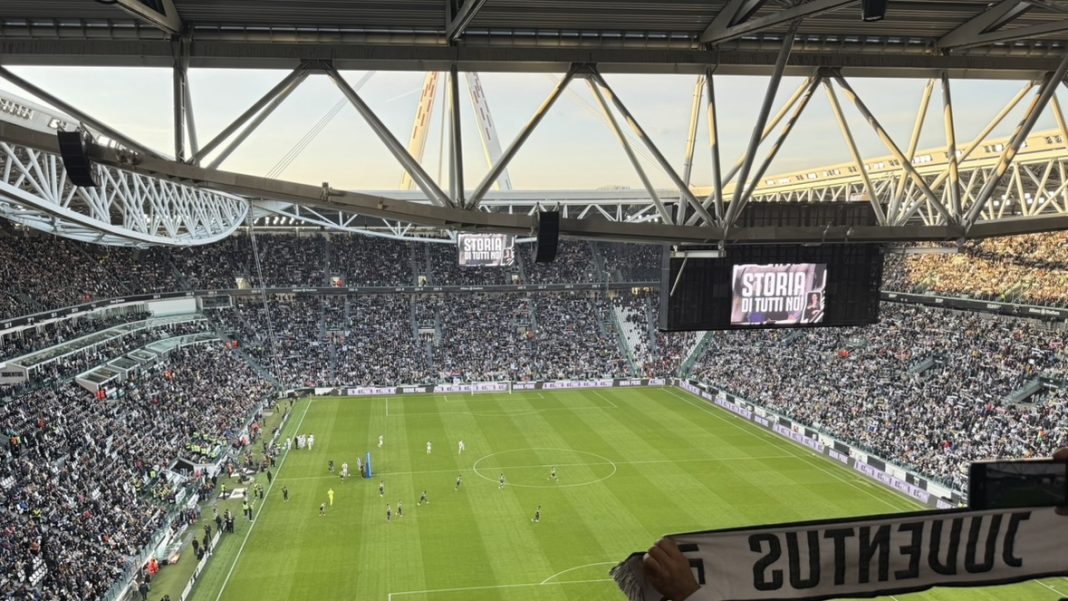In March I twice came very close to something holy: once in Austria and once in the Allianz.
In Vienna, where Mozart played, lived, and died, I buy a ticket to watch a classical music concert at Peterskirche. I have Kaiserschmarrn for dinner, travelling alone for the first time, wandering through the streets bundled up in my coat and scarf. The girl who clips my ticket can’t be much older than me, but she takes me by the hand and leads me into that silence as the doors swing open, padding down the glossy tiles of the nave to where the pews await.
The string quartet emerges to polite applause. When the violinists lift their instruments to their shoulders I can hear them inhale, a single sound synced to the count. And it’s beautiful, the sweet thread of song they draw out, how it rings high and clean and clear all the way up to the Peterskirche’s Baroque frescoes. As if in answer I’m reminded of the Allianz, how they cut the music and the crowd kept singing in the silence, 50,000 bodies speaking with the same voice: Juve, storia di un grande amore…
What a relief, to realise I’m still capable of wonder.
Debussy, del Piero: functionally they’re one and the same, characters in a performance that inhabits a space and turns it into some kind of stage – and, like every performance, what you’re watching has to be christened with rituals. Rapt faces in neat rows, leaning forward as if doing so will bring them any closer to what’s being created: could be either Serie A or a sonata. The round of applause that follows every piece of Dvořák also sees out every clearance, every shot on goal. In the Curva Nord I’m surrounded by Italians attempting to tick off every stereotype imaginable: smoking, tattooed, incredibly enthusiastic in telling me to ignore my ticket entirely and find a seat wherever I can. Behind us a bespectacled boy hoists a flag twice his size into the air, and as we watch he brandishes it wildly and sets off a new wave of melodic chanting.
Bells, songs, hums. People everywhere use sound to mark a time and a space as sacred. You don’t need to speak Italian to infer what bianco e nero means: white and black, the signifier and the signified. The famous stripes. What else, the whole stadium heaving with it, this delirious, electric energy sociologist Emile Durkheim called collective effervescence? A group of people coming together, communicating the same thought, performing the same action – the kind of extraordinary, unifying force that arises then, whether that’s hushed awe or hysterical cheering. That lifts you up, makes you feel like you’re part of something bigger than yourself. As if you’re getting close to something you know you’ll never touch again.
But all those nebulous emotions like love and pride have to go somewhere: give them physical form and suddenly we can speak of away grounds like their atmospheres are hell, stadiums like they’re sites of worship. In the Bernabéu they prayed for miracles and miracles arrived. So back into the bowl it goes, repeated and reanimated each time, infusing the physical space with that communal belief and rendering it divine. Durkheim was envisioning crosses and totem poles when he wrote of sacred objects which take on this significance; funnily enough San Siro’s towering spiral walkways look as if you could climb them all the way to heaven.
You can trace these spaces a long way back. The stadium is the church is the medieval mead-hall of Viking-era fame: that great big wondrous beast, supported by beams that stretch up to the ceiling and ringing with noise. In Beowulf the hall is named Heorot, meaning stag; multiple times throughout the epic the hall is referred to as having a mouth. There’s something almost animal about it, something living. Something that lives in it. Something that lives.
It’s in this way that society creates tangible representations of itself, a constant, cyclical expression of self-affirmation. Heorot represents all of human civilisation, an example of how a space becomes the world – and isn’t that still how it is? As though, for those 90 minutes in the stadium, nothing else exists? As though you lived and died and lived again to do it over next Sunday at noon?
“We have lost religion and found sport”, former BBC sports editor Mihir Bose once claimed; we’ve never lost it, not really. There are patterns we cleave to, comforting ones, familiar ones. We don’t change half as much as we think. When the match starts, sings the crowd, the dream that you are starts too. Fishing for an ending, I return again to that anthem: this story of a great love. Like everything else, that’s what this is all about.


